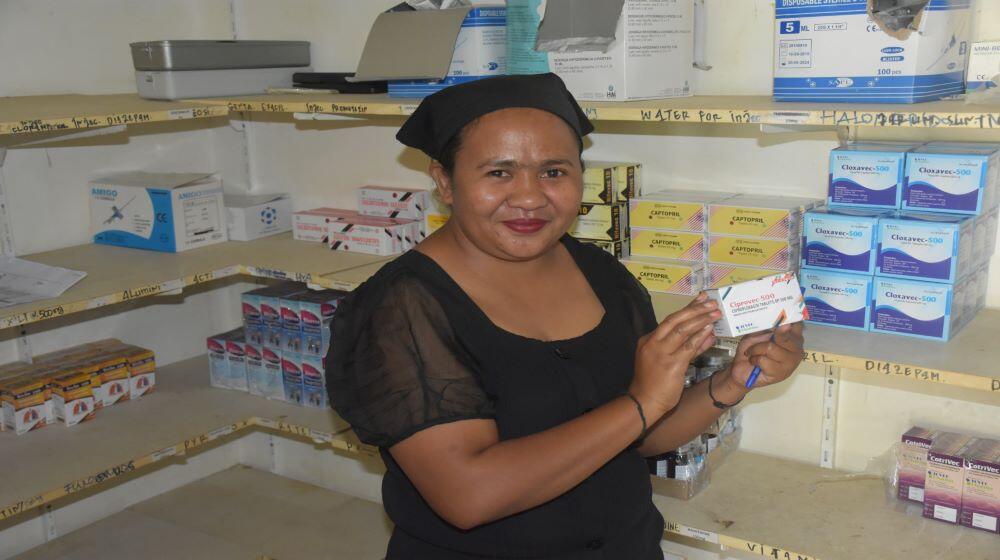Dili, July 07, 2023 – The mSupply system, an electronic logistics management information system to manage medical supplies, now in phase III of its implementation, has simplified supply chain processes and enhanced procurement processes for the Government of Timor-Leste to receive and record stock upon arrival.
The system has helped Timor-Leste Medical and Pharmaceutical Supply Agency (SAMES) and the National Hospital (HNGV) to manage over USD 10 million in medical supplies stock -- facilitating procurement, storage, ordering and distribution of medical supplies to Community Health Centers (CHCs) and Health Posts in Timor-Leste.
With the installation of the mSupply system, health centers in Timor-Leste can now effectively manage and distribute medical stocks to hard-to-reach municipalities.
“The mSupply system has helped me to manage stocks and procure medical equipment and solve stockout problems. The stockout lasts for a short time and we can request new supplies almost immediately,” said Luzitania Ximenes, Head of Hatolia Community Health Centre in Hatolia, Ermera municipality.
According to Eugenia dos Santos, a pharmacist at Hatolia Community Health Center, the health center receives technical assistance from Gleno District Hospital whenever there are any technical issues. Health centers are also connected through a mobile telephone network.
“We receive internet credit every three months that guarantee that we are always connected to the system through the Telemor network. It is easy with the mSupply system to control supplies and requisitions. You do not need to go to the inventory all the time as it is synchronized with the system.
“The manual system was difficult to track inventory,” observed Eugenia dos Santos in her office.
The mSupply system, funded by the Australian Government through UNFPA, demonstrates the commitment to strengthen healthcare systems and supply chains in delivering essential health commodities – including reproductive health commodities to women, girls and communities in Timor-Leste.
The system has different access rights and roles depending on responsibilities and also requires upgrading to respond to current needs of users. While the system has largely improved services, it can be improved to address the changing needs of pharmacists in Timor-Leste.
“Currently we do reporting manually and information is extracted from the mSupply system. There is a need to include a column for reporting in the system,” said Juvencio Zacarias de Deus, a pharmacist at Letefoho Community Health Centre.
UNFPA continues to provide technical support in collaboration with partners and oversight to ensure the system is fully integrated during the expansion phase of mSuppy to community health centers in Timor-Leste.
For more information, contact:
Suleiman Okoth
Communications and Programme Support Specialist
United Nations Population Fund (UNFPA), Timor-Leste
Mobile: +670 75169796
WhatsApp: +254 780534026
Email; okoth@unfpa.org


